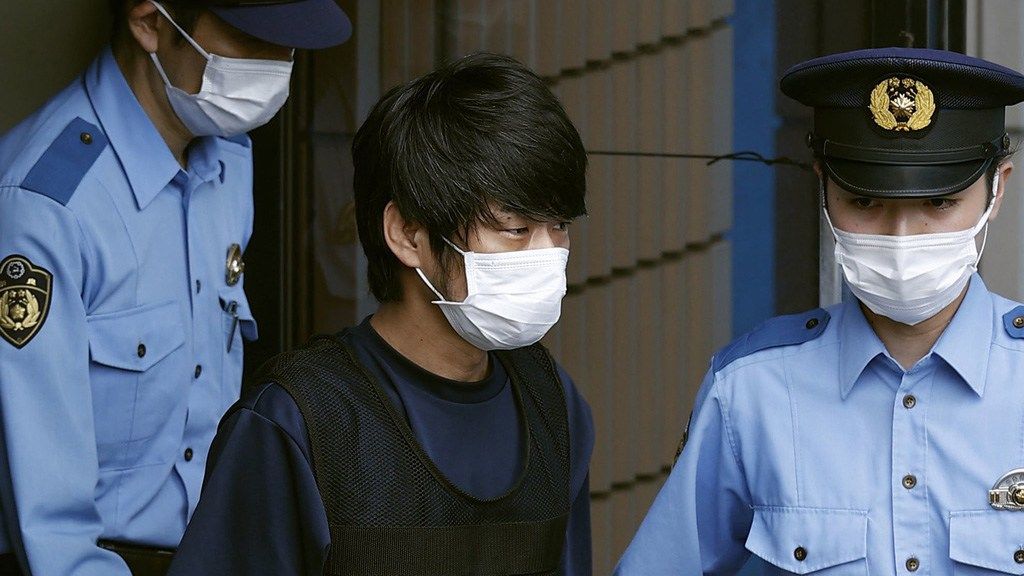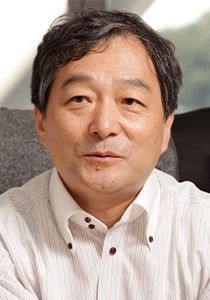
Can We Deter Violence by People with Nothing to Lose?
Society- English
- 日本語
- 简体字
- 繁體字
- Français
- Español
- العربية
- Русский
The Rise of Alienation
INTERVIEWER Eighteen years ago, in your book Kibō kakusa shakai [The Expectation-Gap Society], you predicted that if social gaps continued to widen, people who felt rejected by society would resort to uncivil behavior. How do you view the recent spate of violent crimes perpetrated by people who appear to fit this description?
YAMADA MASAHIRO Japanese society is based on families and company communities. An individual’s identity is formed based on the acknowledgment he or she receives from family and work colleagues. Yamagami Tetsuya, the suspect in the assassination of Japanese former prime minister Abe Shinzō, had family in the form of his mother, but she was immersed in her religion, and in effect, he was rejected by family and colleagues. I believe we are seeing an increase in crimes committed by such people who hold no hope in the present or the future.
INTERVIEWER Do you believe social changes form the background to the incident?
YAMADA Until around 1990, Japan’s favorable economic growth allowed people to believe that it was possible to overcome any social disparity that existed. Most men had a stable income, and women were able to marry such men and raise a family. In spite of social gaps, people could hope to build a prosperous existence through their own efforts. But since then, economic restructuring has created a mass of casual workers, leading to disparity in employment situations. The associated widening gap in family wealth and education has accentuated social polarization. Many people who end up in casual positions cannot expect to carve out a prosperous existence and are unable to marry. Essentially, they have no hope for the future.
Initially, it was mostly young people who were impacted, but as time passes, disparity has spread to the middle-aged and elderly. More broadly, people are emerging who have slipped through traditional family or work structures, and today’s society offers no future prospects for them: only hopelessness. There is now a certain portion of society who we have forsaken.
INTERVIEWER People with nothing to lose are employing increasingly audacious strategies in crimes they commit. What do you think is causing this?
YAMADA Many people’s identities are forged by their family and work. The significance of being employed or getting married lies in the colleagues or family they gain, which in turn link them into society. I believe that a weakening of the inclusive force provided by these two factors lies behind the recent chain of violent incidents.
An example is the January 2022 case of the man in Saitama Prefecture who fatally shot a doctor after he refused to try to resuscitate his dead mother. The suspect had been nursing his mother at home, living off her pension, but at least his mother was somebody to care for and who cared for him. When she passed away, he was left with no one. The doctor then became the target for his anger.
But although there is now a stratum in society of hopeless people, this does not directly spark crime. There is one further step that leads people to commit violent acts. People do not turn to crime if they have an alternative form of social inclusion. In the case of Katō Tomohiro, who was executed in July this year for the indiscriminate massacre he committed in Akihabara in 2008, he had been abandoned by his work and family, and escaped into a world of online message boards. The devastation of his place in the world became a trigger for his actions.
Trapped by Individual Responsibility
INTERVIEWER In the past, suicide tended to be the most extreme course taken by people who felt alienated and without hope. Recently, though, we’ve seen an increase in cases where people feel if they are going to die, they may as well take others with them. Why is that?
YAMADA Globally, Japan still has a high rate of suicide, while indiscriminate massacres are rare compared with other countries. There is a lingering sense that one must not be a nuisance to society. Where people have targeted others, it has been because they felt rejected by society. I feel it’s also related to the growing insistence on individual responsibility.
British Prime Minister Margaret Thatcher once stated that “there’s no such thing as society,” condemning the concept of a welfare state and emphasizing the need for the personal responsibility of individuals. Essentially, she was stating that there was no entity that British people could expect to turn to for help. This was followed by the spread of neoliberalism and the doctrine of individual responsibility.
Society offers no help to those who despair of reality, and their sense of abandonment drives them to direct their aggression towards random strangers. They aren’t attempting to change society or to rebel, like we might see in labor or student movements. They simply wish to take revenge on society, dragging happy-looking bystanders with them.
INTERVIEWER One spreading view of individual responsibility rejects the idea that people suffer due to social disparity on the basis that they are only reaping what they themselves sowed. Does such a way of thinking have implications in the recent series of incidents?
YAMADA Many people who have been impacted by indiscriminate killings say they wish the killer had just died alone. This is a reasonable perspective for someone with a sense of hope in their world. But for social rejects, they no longer feel like a member of society, and have no consciousness of being a nuisance. Consequently, if this individualistic take on personal responsibility becomes the main prerequisite in society, we are sure to see more such incidents.
As we can garner from the example of US society, simply insisting on personal responsibility is not enough to eliminate such crimes. The most effective way to address the plights of people who have lost hope in their circumstances is through conventional methods, with public policies and social support to enable them to enjoy relationships with colleagues, family and friends.
The question is how to create such an environment, which brings us to the virtual world. I believe that Japan has pachinko to thank for the low incidence of desperate acts of violence, because pachinko parlors provide a refuge for people who fail to gain validation at work. Playing pachinko, so long as it is not an addiction, and the existence of public gambling, such as on keirin cycling and horse racing, have suppressed crime. Now, online gaming is taking its place. Gaining pseudo-acceptance in the virtual world helps to prevent people from falling into despair.
The Need for Friend-Matching
INTERVIEWER As the gap between haves and have-nots widens, what means do we have to save those excluded by society? Do you have any clues to help in formulating concrete public policies?
YAMADA In the real world, I don’t believe there is any way to support the building of interpersonal connections except at a micro level. I’m the director of the Organization for Community-based Marriage Support Activities, and have been promoting marriage support throughout Japan for over ten years. But this action is not merely intended to address the falling birthrate. The work also aims to draw out those who are isolated, to connect them with other people. We need to employ methods not simply to encourage people to start a family, but also to prevent their becoming isolated, even if they are single. It doesn’t need to be matchmaking in the conventional sense, but can also be “friend-matching.” In any case, we need to create places where lonely people feel they belong.
It would be preferable to resurrect a society where people are able to find someone special, and take care of their partner and themselves. The Japanese government has appointed a cabinet minister in charge of loneliness and isolation issues. Although there has been little clear communication of the actual activities involved, perhaps the government should also create a post for a minister for making friends.
When I assert the need for the national and local governments to engage in matchmaking activities, I often receive negative feedback from people who believe it’s wrong for the government to become involved in such personal matters. This surely springs from the doctrine of individual responsibility. It’s similar to saying that lonely people live that way through choice and should be left to their own devices, but neglect is what has given rise to the recent problems.
(Originally published in Japanese. Banner photo: Yamagami Tetsuya, the suspect in the shooting assassination of former Prime Minister Abe Shinzō, leaving the Nara Nishi Police Station on July 10, 2022. © Kyōdō.)
Health crime Abe Shinzō employment work murder nothing to lose
